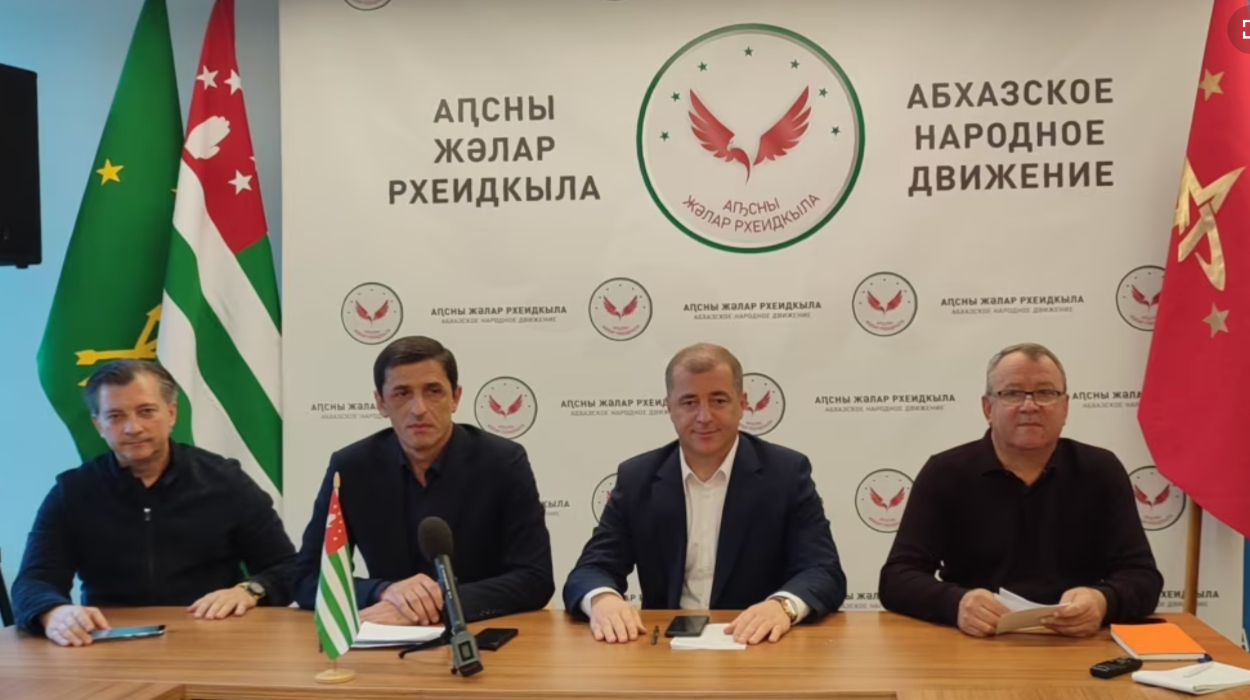Opposition Leaders Decry Lack of Representation in Abkhazia's Public Chamber

Opposition leaders in Sukhum address Public Chamber representation concerns.
SUKHUM / AQW'A — A briefing held by opposition leaders in Sukhum recently spotlighted their dismay over the absence of any of their representatives in the Public Chamber of Abkhazia. The leaders criticised the body for being dominated by individuals with allegiances to the ruling authorities, thereby compromising its intended role as a neutral forum for dialogue and resolution of the ongoing political crisis in the republic.
Beslan Kvarchia's recent departure from the Public Chamber, only to be replaced by lawyer Frida Lazba, further amplified the opposition's concerns. They emphasised that the continued lack of representation reaffirms the narrative that only those favoured by the authorities are granted seats in the Chamber.
Temur Gulia, the leader of the "Aruaa" public movement of war veterans, lamented the rejection of their delegate candidates, noting that this recent development implies the monopolisation of state institutions by the current government. He stressed that the Public Chamber, previously the beacon of free expression and political resolution in Abkhazia, has now been entirely subjugated.
Adgur Ardzinba, Chairman of the "Abkhazian People's Movement," expressed his conviction that the authorities' decisions, including controversial ones regarding state property in Pitsunda, do not reflect the will of the majority. He also warned against the potential escalation of "street political squabbles" due to the exclusion of opposition voices from the Chamber.
Aslan Bartsits, the leader of the People's Unity Forum, directly challenged the motives behind the current government's actions: "What is the need for absolutely loyal people to be present in all structures today? The answer is obvious: the authorities need it because they have not given up the idea of selling properties, apartments. And in order to implement them successfully, they need their own people everywhere." Bartsits questioned the leadership's commitment to the nation, suggesting ulterior motives driven by personal gain.
Vitaliy Gabnia emphasised that the onus shouldn't solely be on the opposition to counteract the abuse of power. He called upon the entire society to resist the tightening grip of the authorities, emphasising collective action as the key to addressing the republic's challenges.
The recent developments in the Public Chamber have amplified concerns about the diminishing avenues for open political dialogue in Abkhazia. The opposition leaders' collective call underscores the urgent need for inclusive representation and a shift towards transparent governance in the republic.